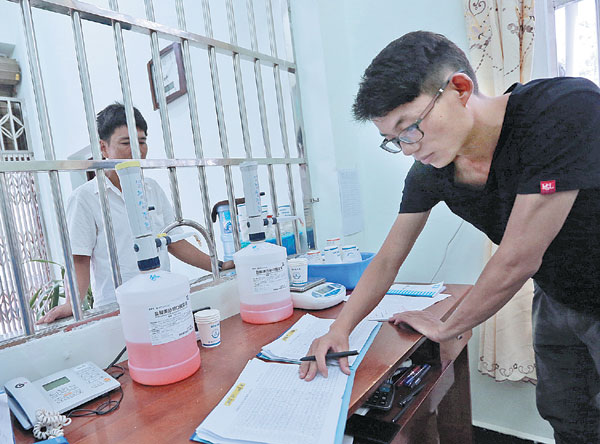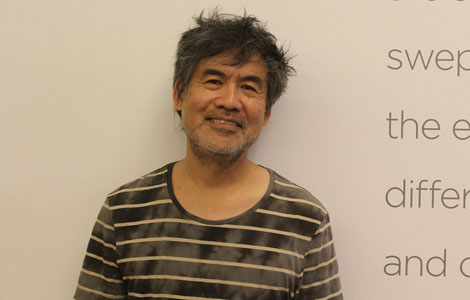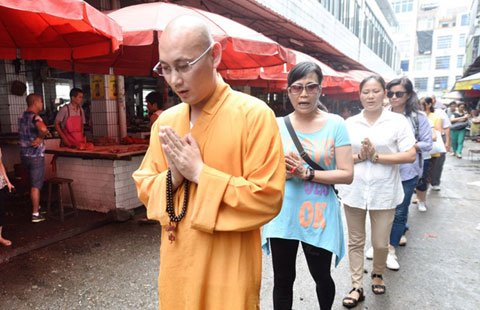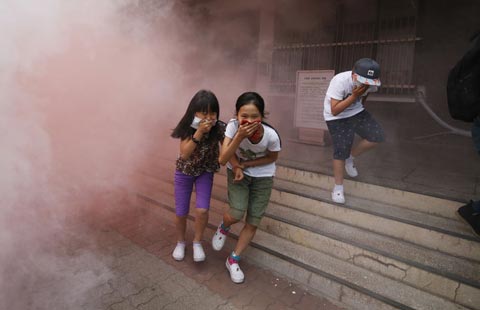Yunnan offers partial reimbursement to patients at methadone rehab clinics
Updated: 2014-06-25 07:09
By Shan Juan in Kunming (China Daily USA)
|
||||||||
Participants in a new rural cooperative medical program in Yunnan province can receive partial reimbursement of their costs for methadone, used in treating drug dependence, as part of efforts to boost public health and social security.
The initiative, considered a breakthrough in the southwest province, which has a high incidence of drug abuse and HIV/AIDS, has been launched in some counties in five prefectures and cities, said Zhang Bo, director of the social service department of the Yunnan Institute for Drug Abuse.
Methadone is a synthetic opioid that is used medically as an analgesic and an anti-addictive agent for patients with opioid dependence.
|
A staff member at a methadone treatment center in Ruili, Yunnan province, gives free methadone, used to treat people with opioid dependence, to a patient on Thursday. Jiang Dong / China Daily |
There are 157 methadone clinics run by health authorities in Yunnan, which has 160,000 registered drug users, official statistics show.
"We plan to further expand the program to more regions in the province and to urban residents by integrating it under the medical insurance policies for urban residents and employees as well," Zhang said.
He conceded that such a move would be difficult, citing the greater complexity of health policies for urban residents.
Despite that, "we'll try our best to ensure equal access to a subsidized methadone maintenance treatment for all", he said.
Most of the methadone clinics treat rural and urban residents of the province, where about 61 percent of residents were registered as rural at the end of 2013.
According to provincial authorities, about 15,000 local drug users receive methadone treatment in Yunnan, at a cost of 10 yuan ($1.6) a day per participant, after factoring in government subsidies.
'Far from enough'
"That's far from enough and the overall coverage of the methadone treatment still needs to be largely increased to curb HIV/AIDS from spreading, particularly via injections," Zhang said.
Under the program, 60 percent to 80 percent of participants' methadone costs are reimbursed.
Participants in Dali can get a full reimbursement on condition they stay on the methadone treatment, he said. So far, up to 300 participants there have benefited from it.
In Yunnan's Wenshan Zhuang and Miao autonomous prefecture, more than 400 locals have benefited from the initiative, accounting for 41 percent of the total number of people receiving such treatment in the prefecture, Zhang said.
The efforts are paying off, he said, with 60 percent of those receiving methadone recording good compliance in Wenshan and attending the clinic every day.
In contrast, the compliance rate for those not covered by the health policy, which is exclusively for rural residents, stands at only 20 percent.
To encourage drug users to undergo methadone treatment, the province has opened more clinics, particularly in areas with a relatively higher concentration of drug users, he said.
At least 89 clinics have also been set up at neighborhood community or village health service centers to make visiting them more convenient.
These centers now handle 24 percent of all patients on methadone treatment in the province, he said.
Public funds debated
It took time and much effort to talk the health authorities into subsidizing the methadone treatment, given that the synthetic opioid has many of the same effects as illegal drugs, Zhang said.
There was also debate on whether it is fair to use public funds to subsidize methadone for drug users, he said.
The treatment greatly helps to reduce underground drug demand and prevent the spread of HIV/AIDS, he said.
"That is worth the cost and will definitely benefit the general public in terms of public health and social security," he said.
However, "more evaluation work will be planned to pinpoint its efficacy", he said.
Drug users can stop or substantially reduce their drug use if they take methadone daily, in turn resulting in less chance of sharing needles, he said.
In 2008, about 1.5 of 100 drug users in Yunnan contracted HIV/AIDS. That rate has dropped to 0.23 in 100, largely thanks to interventions including the methadone clinics.
shanjuan@chinadaily.com.cn
(China Daily USA 06/25/2014 page4)

 PLA ships arrive in Hawaii for world's largest naval exercise
PLA ships arrive in Hawaii for world's largest naval exercise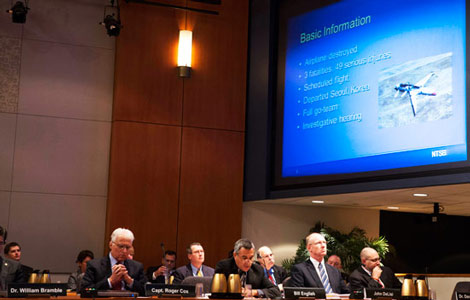
 NTSB blames Asiana crew for crash that killed three
NTSB blames Asiana crew for crash that killed three
 Xunlei goes public on the NASDAQ
Xunlei goes public on the NASDAQ
 Beijing, Boston are just 13 hours apart
Beijing, Boston are just 13 hours apart
 Stable reform expands US-China relations
Stable reform expands US-China relations
 Shanghai's Jews focus of DC show
Shanghai's Jews focus of DC show
 Fosun invests in studio to get Hollywood's know-how
Fosun invests in studio to get Hollywood's know-how
 Soldier's struggles inspire birth of an opera
Soldier's struggles inspire birth of an opera
Most Viewed
Editor's Picks

|

|

|

|

|
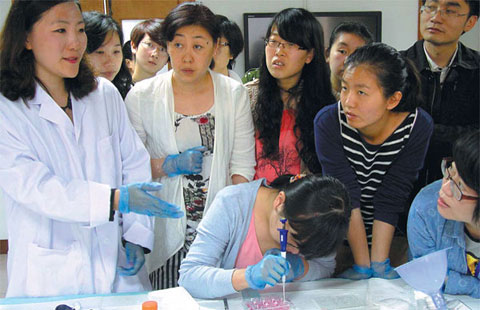
|
Today's Top News
China set to be net investor
Mediators can end labor wrangles, foreign firms told
Aquino backs Abe's military ambitions
Concern surrounds Chinese security forces in Iraq
Pilots' 'mismanagement' causes Asiana crash
Six Flags joins theme-park rush in China
Kerry in Iraq for talks with Kurdish leaders
All tsunami advisories canceled after Alaska quake
US Weekly

|

|
